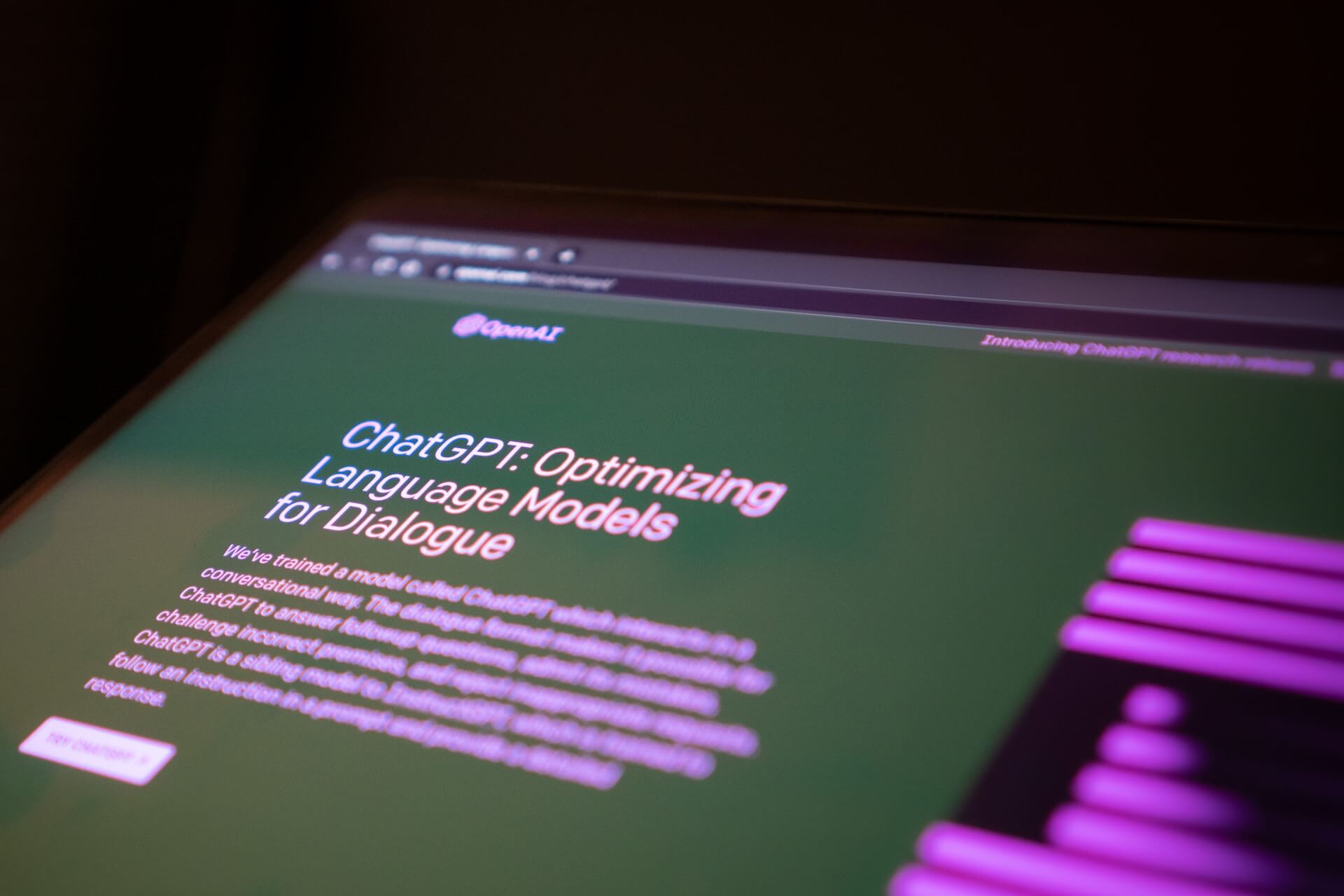ChatGPT Writing Code, Replacing Developers? Not So Fast
ChatGPT is an artificial intelligence (AI) chatbot developed by OpenAI and released in November 2022. The chatbot has a language-based model that the developer fine-tunes for human interaction in a conversational manner. Although its primary use case is for customer service, the powerful tool is currently being utilized for a wide range of activities, such as writing essays, drafting business plans, generating code, and so on.
How Does ChatGPT Work?
ChatGPT works by gathering publicly available data from the internet written by other people and leveraging that data alongside computing predictions to answer questions and queries inputted by the user. As more companies explore chatbot development services, they're increasingly looking to replicate this learning-based approach in their own AI solutions. An end user will prompt the chatbot with a textual request, in which the chatbot will generate a reply and will continue to ‘learn’ more about different subjects and how to discuss them as time progresses.
Can ChatGPT Write Code?
Code writing and code review is one area that many believe ChatGPT could play a vital role in expediting the process and eliminating a large amount of work that was previously conducted by humans. ChatGPT can provide suggestions and comments on human-written code by using natural language processing techniques to understand the meaning and context of code. Getting consistent results, however, depends heavily on how well prompts are crafted—which is where prompt engineering can help streamline the process and reduce ambiguity in the inputs provided. But there are several important factors to consider before employing ChatGPT or any other chatbot as your full-time computer code writer:
- ChatGPT is not "reviewing" the code. It is only returning what it has been trained to recognize as "the sort of continuation" that tends to follow this kind of input. It does not have a deep understanding of the logic or functionality of the code.
- ChatGPT may produce inaccurate or misleading suggestions. It may miss some important issues or introduce new errors in the code. It may also generate irrelevant or inappropriate responses that do not match the tone or style of the code review.
- ChatGPT requires human supervision and verification. The suggestions and comments generated by ChatGPT should not be viewed as authoritative or final. They should be checked and validated by human reviewers who have more expertise and experience in coding.
How IT Teams Can Leverage ChatGPT
Keeping these factors in mind, IT leadership should not fear ChatGPT but rather embrace it as an opportunity to learn and innovate with AI. Organizations can do so by:
- Educating themselves and their teams about ChatGPT's capabilities and limitations, and how to use it responsibly and ethically.
- Monitoring and evaluating the quality and accuracy of ChatGPT's outputs and providing feedback to improve its performance.
- Leveraging ChatGPT's strengths to enhance creativity, productivity, collaboration, and customer satisfaction.
- Understanding that ChatGPT is not a threat but a challenge that IT leadership can overcome by adapting their skills and strategies to work alongside AI systems as partners rather than competitors.
While the extremely rapid progression that AI chatbots have undergone over the past few months is enough to frighten many about their job security, we all must understand that these chatbots will likely serve as a tool to compliment many professions, at least in the near future. Many companies have begun leveraging AI and are looking for candidates with AI expertise. It may be beneficial to check your resume and ensure you have mentioned your expertise with AI.
Will the day come that some jobs are entirely replaced by AI? Most likely, though it will not happen overnight. Back in 2020, the University of Melbourne wrote an insightful article on the history of jobs replaced by technology, and the new jobs that it created. The emergence of AI tools such as ChatGPT will mark the next chapter in humanity’s workforce evolution!
Contact Us
Share this
You May Also Like
These Related Stories

Understanding AI-Powered Social Engineering Attacks

Cyber Insurance & AI: Are You Fully Covered and Secure?

.webp?width=2169&height=526&name=Compass%20white%20blue%20transparent%202%20website%20(1).webp)
-1.webp?width=2169&height=620&name=Compass%20regular%20transparent%20website%20smaller%20(1)-1.webp)
.webp?width=610&height=362&name=November%202023%20CTA%20(23).webp)
No Comments Yet
Let us know what you think